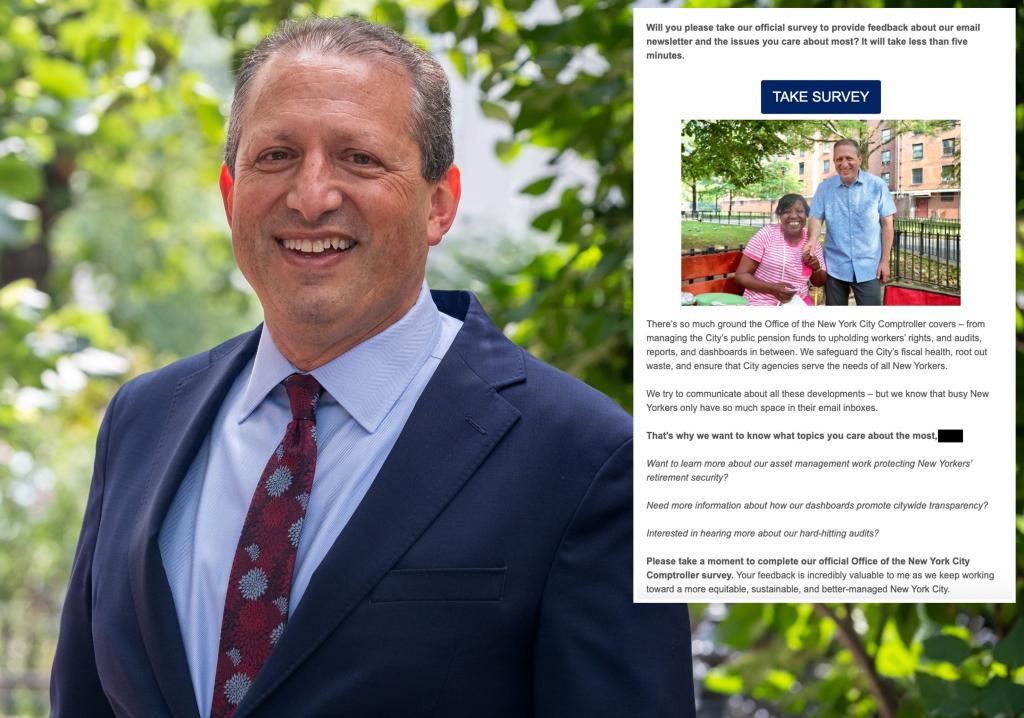City Comptroller Brad Lander, a candidate for Mayor of New York City, is distributing a survey to New Yorkers to gather feedback on his performance as the city’s chief auditor and watchdog. The survey includes information about the achievements of the New York City public pension systems, including a 10% return and savings of $1.81 billion for taxpayers. However, concerns have been raised that Lander is using public resources to promote his mayoral bid by highlighting these accomplishments.
While the pension fund returns are noteworthy, they still fell short of the returns that could have been achieved with a standard investment portfolio. This discrepancy has led some to question the motives behind Lander’s distribution of the survey. Political consultants and strategists have criticized Lander for using public resources for his campaign and have called for an ethics probe into his actions. They argue that Lander is using the comptroller’s office as a campaign headquarters, which raises ethical concerns.
The survey asks respondents about their awareness of recent audits conducted by Lander’s office, including oversight of a controversial contract for a migrant shelter and the use of ShotSpotter technology for identifying shootings. Lander is also seeking feedback on emergency storm preparedness. Political experts believe that Lander is attempting to reposition himself politically to distance himself from his association with the Democratic Socialists of America and progressive left politics. This may be an effort to appeal to a broader base of moderate voters in the upcoming mayoral election.
Lander’s reputation as an out-of-the-mainstream progressive activist may be a liability in the mayoral race, especially as the city shifts away from radicalism. By focusing on his record as comptroller and highlighting examples of fiscal stewardship and oversight, Lander may be trying to redirect the conversation away from his progressive affiliations. Critics argue that Lander’s campaign strategy is an attempt to move away from associations with radical groups and showcase his role as comptroller in a positive light to voters.
In response to the criticism, a representative for Lander defended the survey as a legitimate communication from the comptroller’s office. The representative dismissed the criticisms as a “cheap shot” and argued that highlighting accomplishments related to pension fund returns and audits is a normal function of the office. The representative also pushed back against the idea that the survey was inappropriate, comparing it to the routine communication from City Hall about the mayor’s achievements. Overall, the survey distributed by Lander has sparked controversy and debate about the use of public resources for political campaigning in the upcoming mayoral election in New York City.


